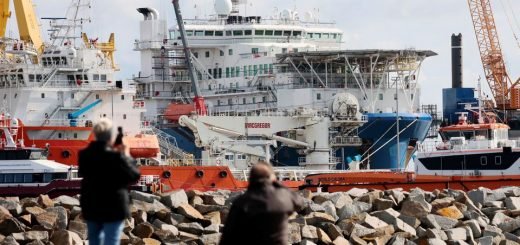Alexei Navalny: “Prepared to Lose Everything”
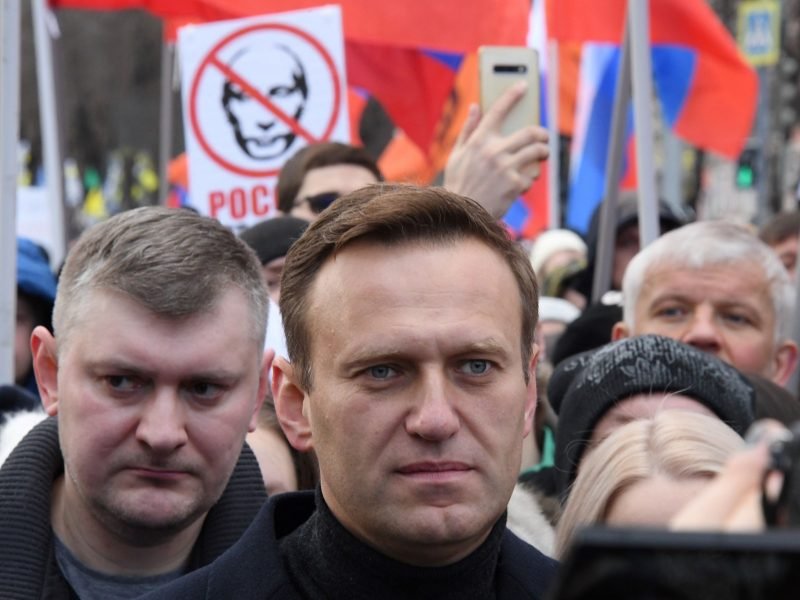
EXECUTIVE SUMMARY: The near-murder of Russian opposition politician Alexei Navalny last August, his return to Moscow in January, and the resultant protests attended by tens of thousands in more than a hundred Russian cities raise the question of how long the Russian people will continue to tolerate President Vladimir Putin’s repressive acts against political enemies and rivals.
Large throngs gathered in the streets of dozens of Russian cities to express their support for opposition politician Alexei Navalny after his return to Moscow on January 17, 2021 following medical treatment in Germany. The police attacked the protestors with batons and arrested more than 3,300 people.
While recuperating in Germany from an attempted poisoning with the nerve agent Novichok, Navalny, aided by an investigative organization, filmed himself calling Konstantin Kudryatsev, a toxins expert at Russia’s Federal Security Service (FSB). Using a disguised telephone number, Navalny posed as an aide to the chairman of Russia’s Security Council and asked Kudryatsev for the details of his own poisoning. Over the course of the 49-minute conversation, Kudryatsev divulged full details of the poisoning, including the placement of the toxin in Navalny’s underwear at a hotel in Tomsk.
In December, Navalny’s Anti-Corruption Foundation (FBK) released the video of the call.
After his January arrest in Moscow, Navalny released a nearly two-hour documentary entitled “Putin’s Palace: The History of the World’s Largest Bribe” on YouTube, where it has drawn more than 100 million views. Putin’s billion dollar-plus residence was financed, claims FBK, through a corruption scheme run by oligarchs in Putin‘s inner circle.

On January 23, Navalny was arrested for allegedly violating the terms of his parole, which was imposed in 2014 under a suspended sentence for what he calls a fabricated charge of embezzlement. The European Court of Human Rights ruled in 2016 that the 2014 conviction was unlawful.
According to the BBC, “The case against Navalny was based on his failure to report regularly to police during 2020—an absurdity, his legal team argued, as the authorities knew full well that he was getting emergency treatment in Berlin for the Novichok nerve agent attack. He reminded the court that for part of that time he was in a coma.”
In a speech to the court on February 2, when the judge sentenced him to two and a half years in a penal colony for the parole violation, Navalny said, “[Putin’s] main gripe with me is that he’ll go down in history as a poisoner. We had Alexander the Liberator, Yaroslav the Wise, and we will have Vladimir the Underpants Poisoner.”
The following week, Navalny was hauled back to court for allegedly “slandering a WWII veteran who took part in the promotional video in support of last year’s constitutional amendments that cleared the way for President Vladimir Putin to run for two more terms in office.” Navalny had “described those in the video as ‘traitors,’ ‘people with no conscience,’ and ‘corrupt lackeys.’”
Meanwhile, nationwide protests continued. In the freezing winter, during which temperatures sometimes dipped as low as -60 degrees Fahrenheit, Russians gathered in a display of support for Navalny.
Since 2018, Navalny has headed Progress, a political party also known as Russia of the Future. Its platform stands for, among other things, decentralization of power; rule of law; an end to censorship; reduced government interference in the economy; and partnering with Western countries.
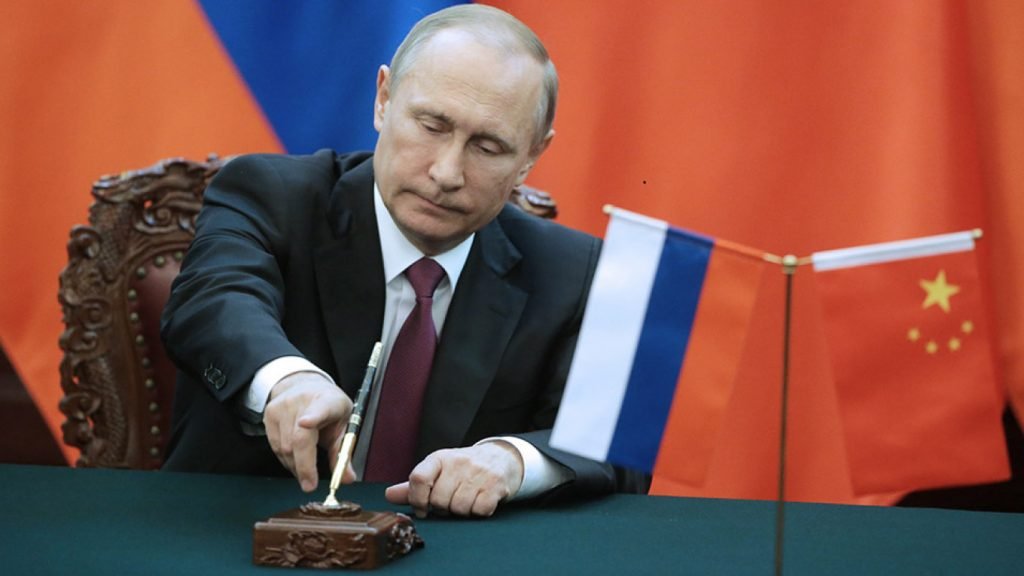
It is no secret that Putin has a history of allegedly taking revenge on journalists, such as Anna Politkovskaya, Paul Klebnikov and Natalia Estemirova, as well as other enemies or opponents.
In 2004, Viktor Yushchenko, a pro-Western candidate for president of Ukraine, was disfigured in a poisoning attack. In 2006, Russian double agent Alexander Litvinenko was killed with radioactive polonium. In 2015, popular political reformer Boris Nemtsov was assassinated. His friend, Vladimir Kara-Murza, was poisoned twice, in 2015 and 2017, but survived. Sergei Skripal, a former colonel in Russian military intelligence and allegedly a double agent working for Britain, was also poisoned with Novichok, along with his daughter, Yulia. The attacks on Skripal and his daughter occurred on British soil, presumably to underscore that no one is out of reach.
How did Navalny rise to prominence?
In 2007, Navalny obtained information on corruption and misuse of funds at Russian state-owned oil and gas companies and publicized it on his widely read LiveJournal blog.
In 2011, he founded the Anti-Corruption Foundation and ran unsuccessfully for mayor of Moscow. The same year, he led a series of protests against election fraud. In addition, his organization created a “smart” voting platform that informs the public about alternatives to Putin’s candidates.
At the 2012 parliamentary elections, Navalny’s party lost to Putin’s United Russia Party by a large margin. In 2020, however, thanks to Navalny’s growing influence, Putin’s party lost seats in Moscow, Khabarovsk, Tomsk, and Novosibirsk.
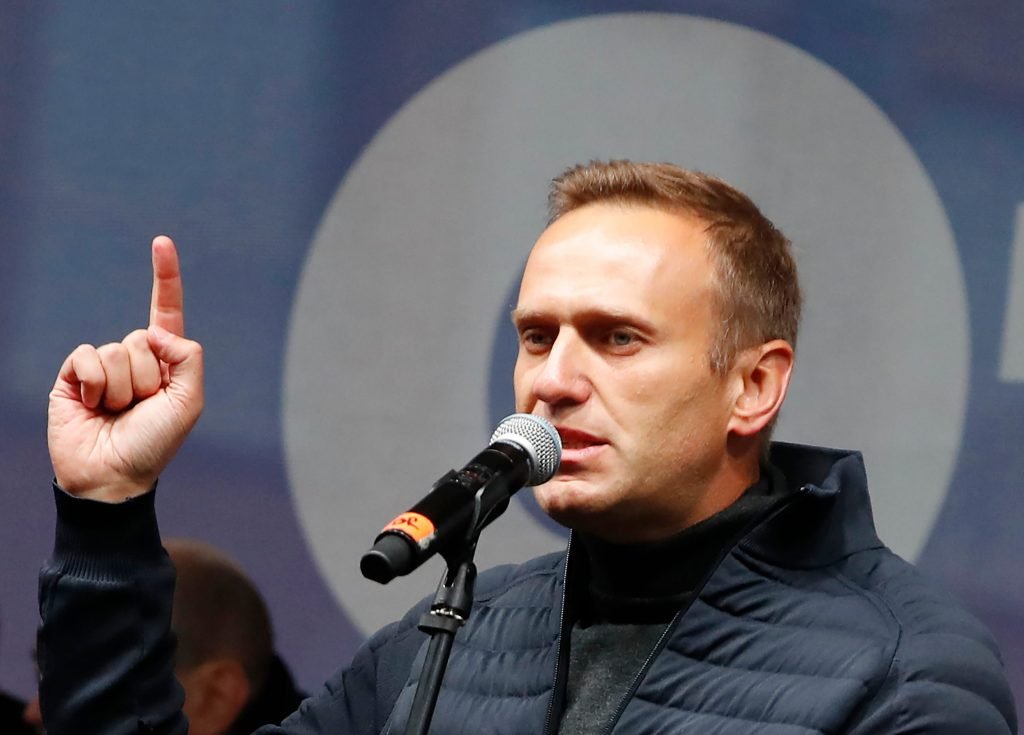
In 2018, Navalny sought to run against Putin in the presidential election. He obtained 200,000 signatures and opened 81 campaign offices nationwide. But unlike lesser-known candidates, he was barred from running because of his 2014 conviction for embezzlement and money laundering, a case he called “trumped up.”
Since then, waves of protests have swept Russia, along with growing admiration for Navalny around the world.
Comparisons between underdogs Donald Trump and Navalny are hard to avoid, particularly as both are the victims of censorship. Navalny tweeted on January 9:
I think that the ban of Donald Trump on Twitter is an unacceptable act of censorship…
The election is a straightforward and competitive process. You can participate in it, you can appeal against the results, they’re being monitored by millions of people. The ban on Twitter is a decision of people we don’t know in accordance with a procedure we don’t know…
Don’t tell me he was banned for violating Twitter rules. I [have gotten] death threats here every day for many years, and Twitter doesn’t ban anyone (not that I ask for it)…
Among the people who have Twitter accounts are cold-blooded murderers (Putin or Maduro) and liars and thieves (Medvedev). For many years, Twitter, Facebook and Instagram have been used as a base for Putin’s “troll factory” and similar groups from other authoritarian countries.
Of course, Twitter is a private company, but we have seen many examples in Russia and China of such private companies becoming the state’s best friends and enablers when it comes to censorship.
This precedent will be exploited by the enemies of freedom of speech around the world. In Russia as well. Every time when they need to silence someone, they will say: “This is just common practice, even Trump got blocked on Twitter.”
In 2018, President Trump expelled 60 Russian diplomats from the US days after the British government positively identified the nerve agent used in the Skripal poisonings as Novichok—a substance that is banned by the Chemical Weapons Convention, an international treaty of which Russia is a state party. Trump also ordered the closure of the Russian Consulate in Seattle. Several EU countries, Canada, and Ukraine followed suit and expelled Russian diplomats.
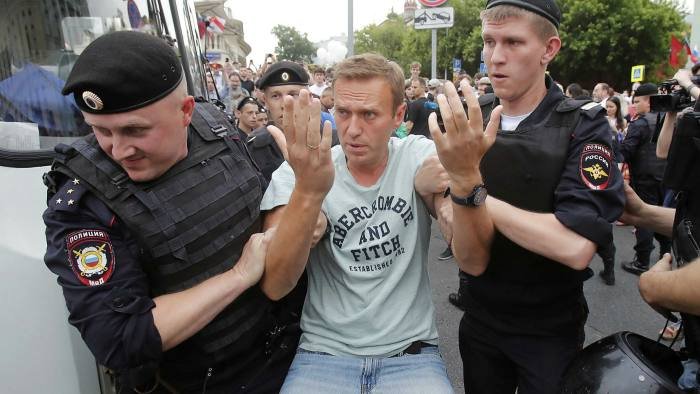
Before Navalny, opposition figures who survived attacks have retreated or fled. Navalny, who has been physically attacked and jailed many times, has refused to flee, emigrate, or keep silent.
Navalny, now in the IK-2 penitentiary in the city of Pokrov, said he had experienced “no violence in his new surroundings,” which he called a “friendly concentration camp” in a message posted to his Instagram account on March 15.
“He is prepared to lose everything,” said economist Sergei M. Guriev, a Navalny confidant who fled to France in 2013 after coming under pressure from the Kremlin. “That makes him different from everyone else.”
On March 2, 2021, the Biden administration imposed sanctions on Russian officials and companies and is considering further steps. According to The Guardian, “Senior administration officials described the measures taken, which are also a response to Navalny’s continued imprisonment, as catching up with sanctions imposed on Moscow by the EU in October.” Those measures are not likely to be sufficient. Russia has already imposed sanctions of its own against European officials in reprisal.
Voices around the world need to continue to call for Navalny’s release.
Putin is, of course, still popular with much of Russia. Polls show his approval rating in the mid-60s. Russian media outlets are portraying Navalny’s supporters in a negative light amid footage of violence directed against the police. Crackdowns on supporters are anticipated.
Yet Navalny has hope that his movement can carry on without him. Reacting to his sentencing, he addressed his followers in the courtroom: “This [imprisonment] is happening to intimidate large numbers of people. They’re imprisoning one person to frighten millions. This isn’t a demonstration of strength—it’s a show of weakness.”
This article was originally published by BESA Center



